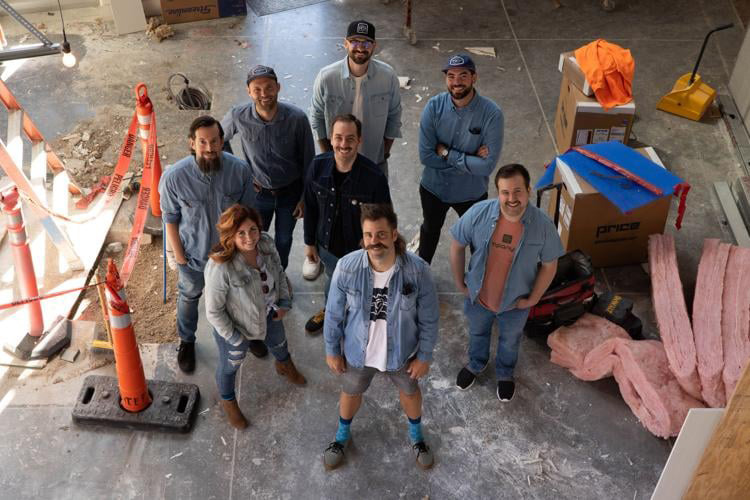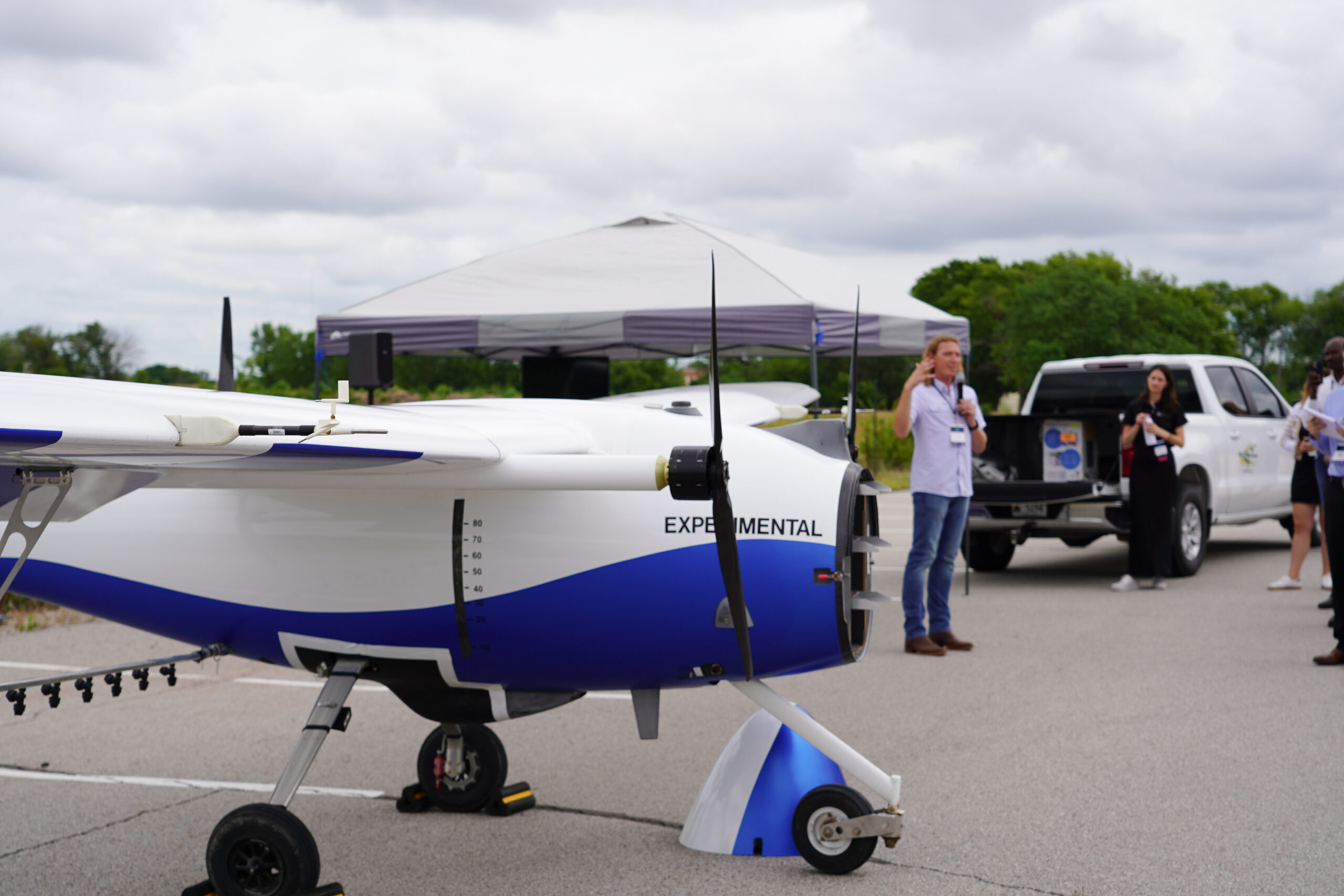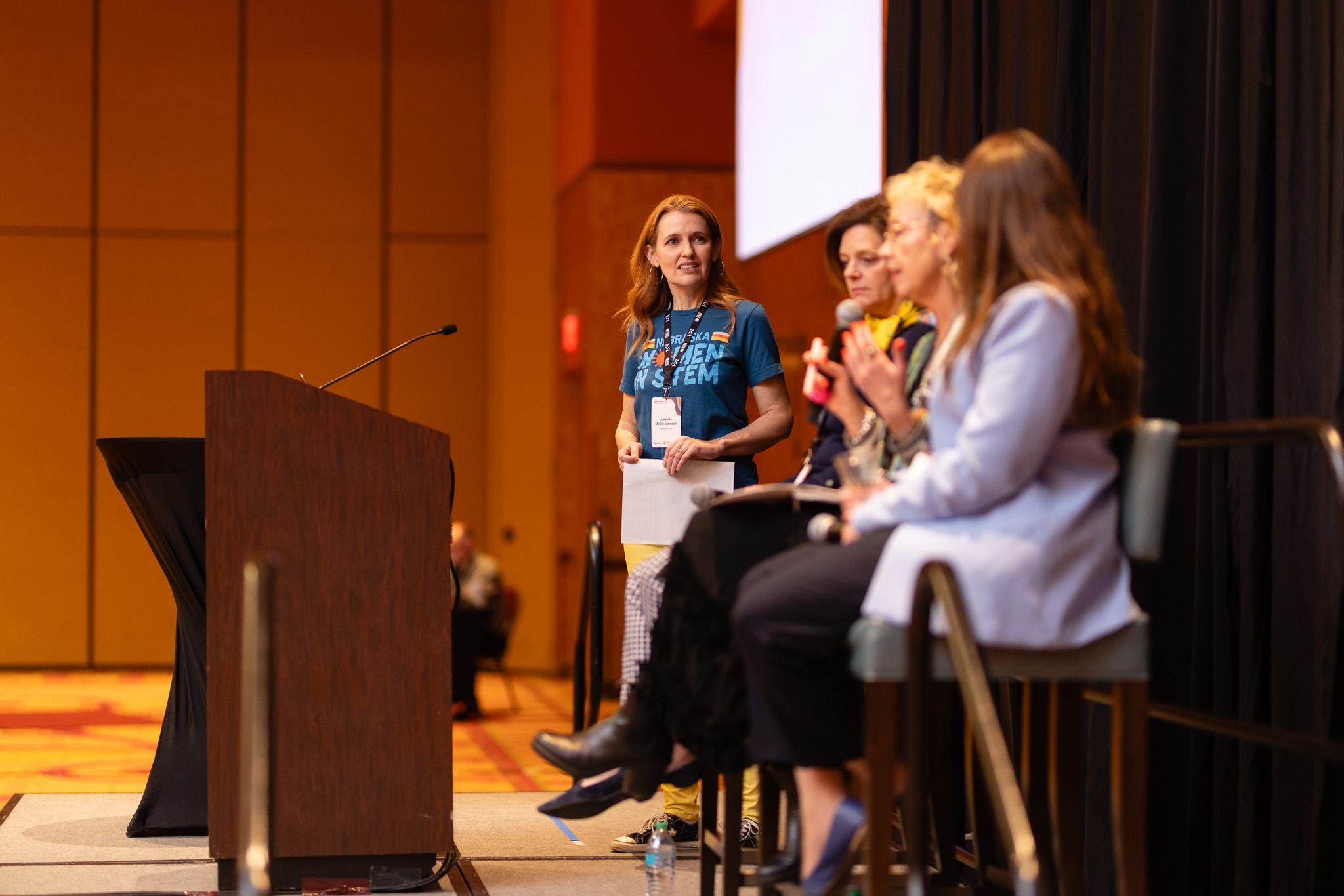Quantum Qool, a Nebraska-based startup developing laser-enabled thermal management systems for advanced electronics, is entering a new phase of growth. The company’s patented ultrafast laser-structuring process modifies the surfaces of materials like copper and aluminum to increase energy density, cooling efficiency and emissivity, solving critical thermal problems in batteries, processors, solar panels and even spacecraft.
Its technology enables faster, smaller and more powerful devices to safely operate at higher temperatures without the need for additional coatings or materials that break down over time.
Now, Quantum Qool’s deep tech is receiving national attention.
In the span of a few months, the company has been selected for three major programs: the Orbital Edge Accelerator, which includes a $500,000 investment and the chance to test on the International Space Station; the Amazon Devices Climate Tech Accelerator, which supports low-carbon innovations for consumer electronics; and a finalist spot in the upcoming Space Innovation Challenge, where the company will pitch leaders from NASA, U.S. Space Force and major defense contractors.
“The convergence of all these opportunities just came from taking advantage of every opportunity out there, even when the odds seemed low,” said Kent Campbell, co-founder and CEO of Quantum Qool. “The ISS selection, Amazon’s accelerator and the Space Innovation Challenge finalist status are validations that we’re positioned at the right place, at the right time for multiple massive markets requiring thermal innovation.”
Campbell said that co-founder Victor Rivas’s work on their patented ultrafast laser technology has led to significant advances in thermal management, which the team views as transformational rather than incremental. He credited their rapid progress to strong partnerships and a focused approach to solving real-world problems.
Scott Henderson, general partner at NMotion, worked closely with Quantum Qool when they participated in the accelerator in 2023. He said the company has evolved from an academic concept into a commercially viable business.
“When we first met them, they had the science and the intellectual property and a vision,” Henderson said. “But it felt more like a research project than a business.”
The NMotion program pushed the team, co-founders Rivas and Campbell, to pressure-test their product in the market. That included securing in-kind support from laser and optics companies and starting to process fundamental components from interested customers.
“They really leveraged the program to push themselves in front of customers,” Henderson said. “They were able to show the industry wanted this and were willing to pay for it.”
That validation helped unlock new partnerships. Henderson said vendors began providing high-end laser equipment for prototyping and training, viewing Quantum Qool as a potential player in the supply chain for aerospace and electronics.
“People are convening at Quantum Qool from across the country to learn how to do this nano-machining,” he said. “That creates talent inflow, corporate connection and proof that this is a meaningful opportunity.”
Each of the company’s recent selections reflects different strengths and goals.
The Orbital Edge Accelerator, backed by venture capital firms and the ISS National Lab, is supporting Quantum Qool in preparing its technology for deployment in microgravity. The program includes coaching, networking with space investors and corporate scouts and a potential sponsored launch to the space station.
“We’re testing our laser-structured thermal management components and materials in microgravity to validate performance for space applications,” Campbell said. “This data will prove our technology’s effectiveness for satellites, spacecraft thermal radiators and space-based electronics.”
Campbell said that testing in microgravity allows the team to isolate radiative heat transfer, the core mechanism behind their technology, without interference from convective cooling. The results will help quantify how their nanostructures enhance thermal radiation in space and provide insight into how the technology performs in Earth-based applications like electronics, batteries and solar cells.
“The $500,000 investment is amazing for a small hardware startup like ours,” Campbell said. “It’s allowing us to expand our in-house capabilities, build the technical team we need for space validation and focus on product without distraction.”
Meanwhile, the Amazon Devices Climate Tech Accelerator focuses on decarbonizing consumer electronics. Quantum Qool’s laser-sculpted surfaces can reduce the need for heavy or inefficient cooling solutions in processors and other heat-sensitive components, an increasingly urgent need as electronics become smaller and more powerful.
“Amazon moves fast and operates at massive scale, exactly where we want to be,” Campbell said. “Their device ecosystem requires better heat management, and Kuiper satellites in particular face enormous thermal challenges.”
“Every breakthrough climate technology faces similar scaling challenges,” Campbell added. “The diversity in our group is valuable. Battery innovations inform our electrode work, and materials breakthroughs apply to our substrates. Shared knowledge accelerates everyone.”
“We founded this accelerator to find companies who can help us reduce the carbon impact of Amazon devices,” said Maiken Moller-Hansen, director of energy and sustainability at Amazon Devices and Services. “We look forward to these startups learning directly from Amazon leaders and pitching their technologies to our teams as we dive deeper into their exciting innovations over the coming weeks.”
Rounding out their recent momentum, Quantum Qool will head to Washington, D.C., later this month as a finalist in the Space Innovation Challenge. The competition, hosted at the International Space Industry and Government Summit, highlights breakthrough technologies in satellite systems, space logistics, in-space manufacturing and thermal management. Judges include experts from NASA, U.S. Space Force, BAE Systems and Amazon.
“It validates for us that thermal management is a critical national security issue,” Campbell said. “Space systems generate enormous heat in harsh environments, and our technology directly addresses mission-critical challenges.”
“We’re not just improving existing solutions, but enabling entirely new capabilities that were thermally difficult before,” he said.
Henderson said the company’s trajectory is not just a win for the team, but also a broader sign of Nebraska’s deep tech potential.
“This is a good example of leveraging the strengths Nebraska has,” Henderson said. “Femtosecond laser research is strong here,” referring to the study and application of lasers that emit extremely short pulses of light. “And now we’re seeing a company take that foundation and prove they can build something globally relevant from it.”
Rivas, who worked at NASA for 18 years, developed the company’s core technology. The process enhances materials like silicon carbide and graphite to radiate heat better and withstand extreme environments. Campbell brings a background in economic development and infrastructure projects, helping to drive commercialization and industry partnerships.
Quantum Qool’s customers range from defense and aerospace organizations to clean energy and electronics manufacturers. By enabling components to run hotter, last longer and perform more reliably, the company is positioning itself as a scalable solution to one of the biggest bottlenecks in modern electronics.
“We want to demonstrate that our technology works across multiple industries, moving from R&D to consistent revenue,” Campbell said. “Successful ISS validation, a pilot with Amazon, integration of our first production-level Q2 laser station and new contracts across defense, semiconductors and batteries — that’s what success looks like for us.”
As they move forward with accelerator programs and national exposure, Quantum Qool is entering a critical stage of testing, deploying and scaling a solution that just a few years ago was still locked in the lab.
You can listen to Henderson and Campbell talk more on the OMAPOD podcast about building in Nebraska here and Quantum Qool’s success here.



